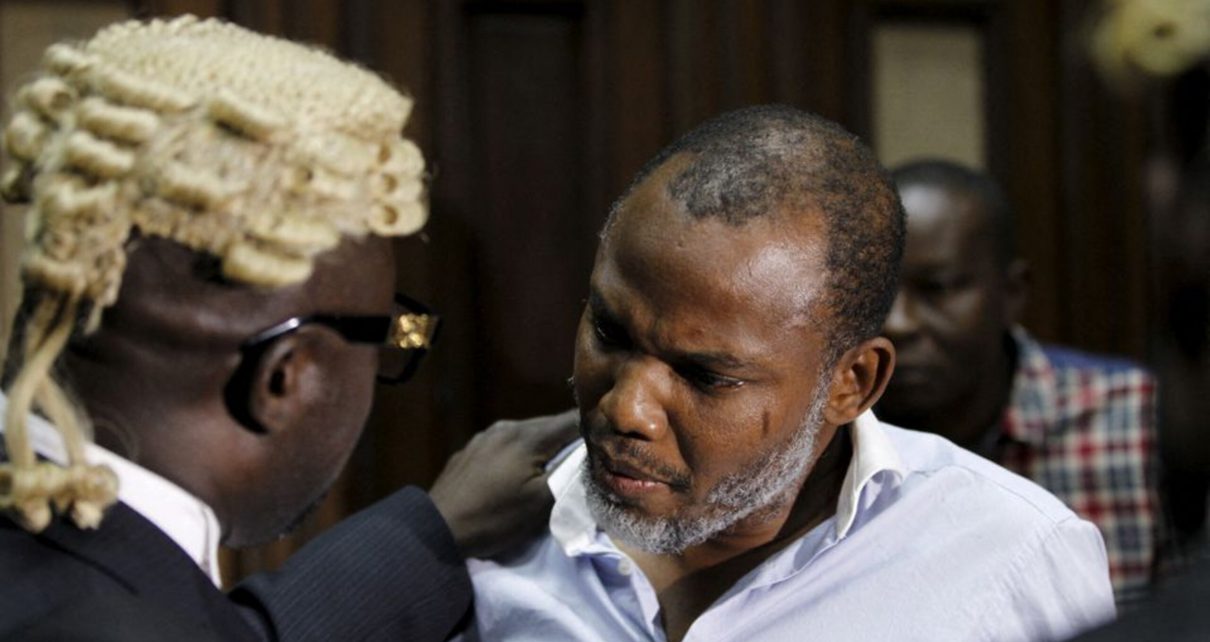The leader of the banned Nigerian separatist movement, Indigenous People of Biafra (IPOB), pleaded not guilty to eight new charges that include terrorism and incitement on Wednesday as his defence sought the dismissal of the case, arguing that it lacked merit.
Nnamdi Kanu, leader of IPOB, previously entered a not guilty plea to seven charges including terrorism and knowingly broadcasting falsehoods on October 21.
This week, state prosecutors added eight more charges to Kanu, 54, who is also a British citizen. Most of the charges are linked to broadcasts he made between 2018 and last year. His lawyers say the new charges are meant to prolong his detention.
“We are further asking that the defendant should be discharged and acquitted as there is nothing in this charge. It has no basis at all,” Kanu’s lead lawyer, Mike Ozekhome, told a High Court judge.
The judge will decide on Kanu’s application to drop the charges without going to trial. He deferred the case to February 16.
IPOB, which Kanu founded in 2014, is pressing for the secession of the Igbo ethnic group’s homeland, which covers part of southeast Nigeria. Authorities view IPOB as a terrorist group. IPOB says it wants to achieve independence through non-violent means.
An attempt by the Igbo homeland to secede as the Republic of Biafra in 1967 – the year that Kanu was born – triggered a three-year civil war that killed more than 1 million people.
Separately, a court in Abia state on Wednesday awarded 1 billion naira ($2.4 million) in damages to Kanu from the federal government after security forces broke into the separatist leader’s father’s house looking for him in September 2017.
The judge in Abia also asked the government, which can appeal the ruling, to issue a public apology for the incident in the media. (REUTERS)



